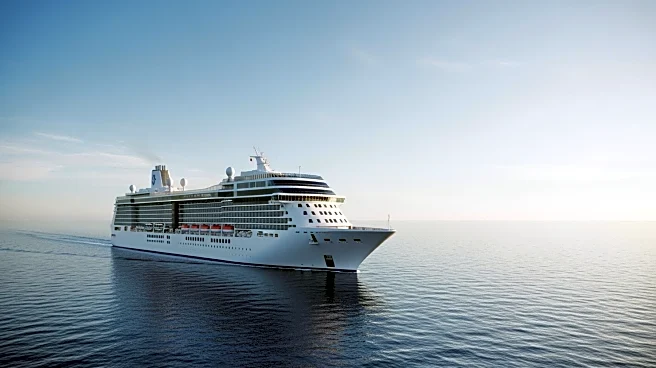What's Happening?
The cruise industry is experiencing a significant resurgence, with projections indicating a fourth consecutive year of record passenger volumes in 2026. According to a report by AAA and Tourism Economics, the industry is on track to reach 37.7 million
global cruise passengers in 2025, marking a nearly nine percent increase from 2024. The U.S. market plays a crucial role in this growth, with North America remaining the top source market, showing a 13 percent increase in 2024 over the previous year. The American segment is expected to reach 20.7 million passengers in 2025, with further growth anticipated in 2026. Major U.S. ports, including PortMiami, have reported record-breaking passenger numbers, underscoring the robust demand for cruises among American travelers.
Why It's Important?
The growth of the cruise industry has significant implications for the U.S. economy and tourism sector. The increase in cruise passengers contributes to economic activity in port cities, supporting jobs and local businesses. The demand for cruises also reflects broader consumer confidence and spending power, particularly among older demographics who make up a large portion of cruise travelers. The industry's expansion is prompting cruise lines to invest in new ships, which could lead to further economic benefits through shipbuilding contracts and related industries. Additionally, the high satisfaction rates among cruise passengers suggest a strong potential for repeat business, further solidifying the industry's growth trajectory.
What's Next?
As the cruise industry continues to expand, cruise lines are placing significant orders for new ships, with plans extending through 2033. This includes large orders from major companies like Carnival Cruise Line, Norwegian Cruise Line, and Royal Caribbean. The introduction of new ships is expected to enhance the cruising experience and attract more passengers. The industry is also likely to explore new destinations and itineraries to meet the growing demand. Stakeholders, including port authorities and local governments, may need to invest in infrastructure improvements to accommodate the increasing number of cruise passengers and ships.
Beyond the Headlines
The cruise industry's growth raises questions about environmental sustainability and the impact of increased cruise traffic on marine ecosystems. As the industry expands, there may be increased scrutiny from environmental groups and regulatory bodies regarding emissions and waste management practices. Cruise lines may need to adopt greener technologies and practices to address these concerns and maintain their social license to operate. Additionally, the industry's focus on luxury and expedition cruises could lead to a shift in consumer preferences, with potential implications for traditional cruise offerings.
















